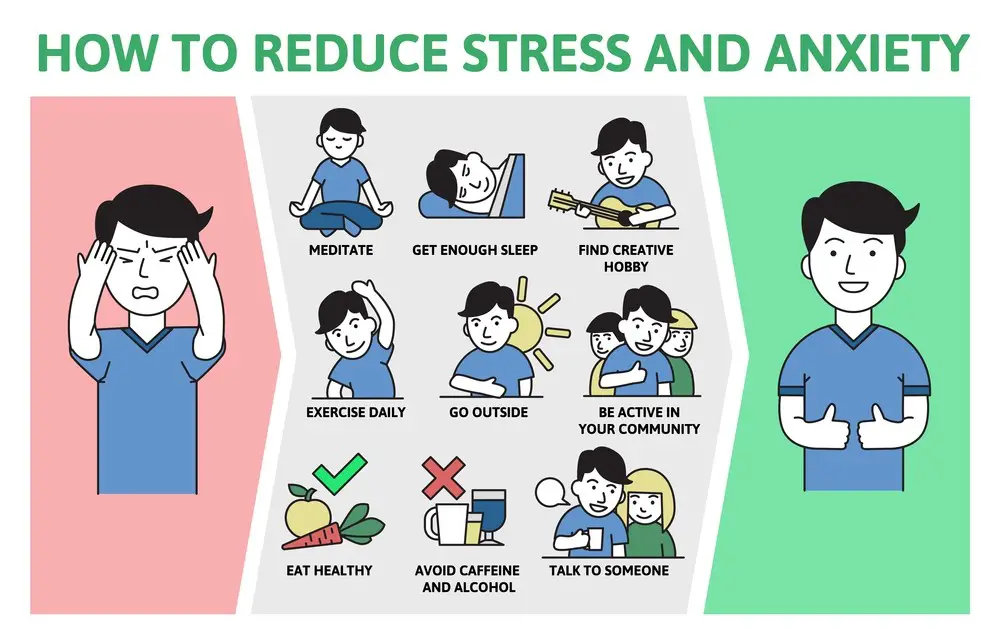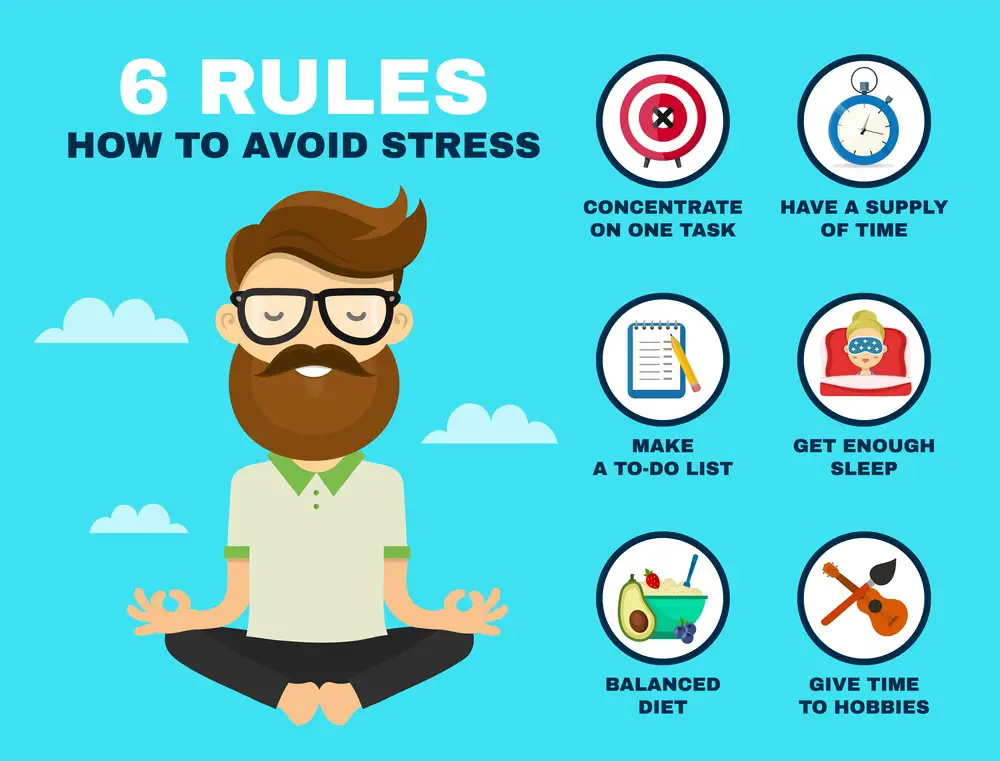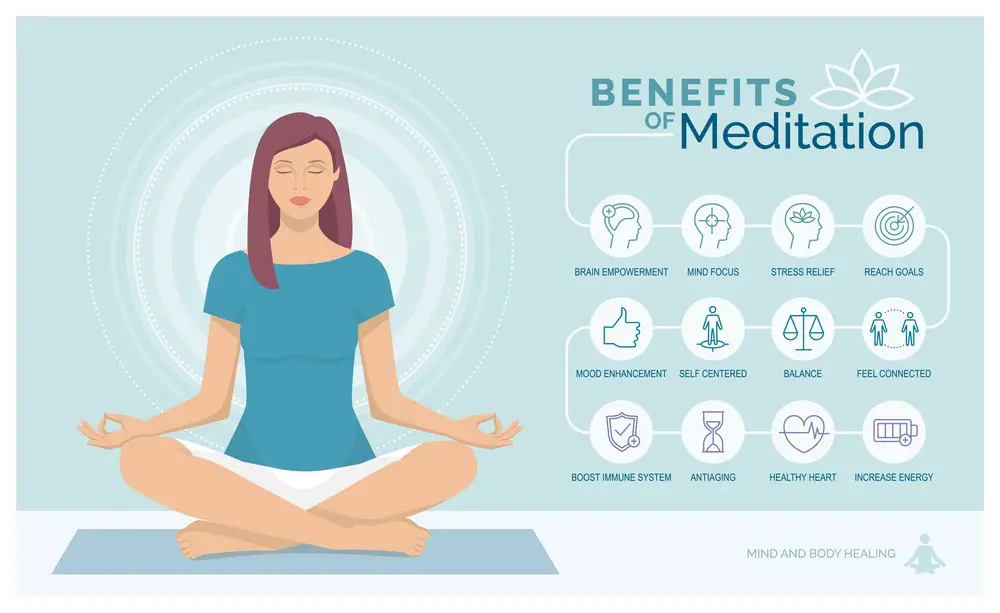As a BetterHelp affiliate, we receive compensation from BetterHelp if you purchase products or services through the links provided
Nosebleeds: they’re unexpected, startling, and, let’s face it, they can be a little unnerving. Whether in the middle of a meeting or just relaxing at home, the sudden onset of a nosebleed can prompt a flurry of questions. One question that often arises is whether stress can contribute to these unwelcome nosebleeds.
The link between stress and physical health is complex, a labyrinthine maze of hormones, nerves, and blood vessels. As we navigate our lives, stress is an ever-present companion for many of us. It’s no wonder we wonder if it’s behind some of our less-than-pleasant physical symptoms, like those pesky nosebleeds.
So, can stress cause nosebleeds? The answer isn’t as straightforward as you might think. Grab a tissue, sit, and dive into the intriguing relationship between stress and your nasal health. Along the way, we’ll explore:
- The physiology of stress and how it affects your body
- Common causes of nosebleeds
- Medical insights into stress-induced Nosebleeds
- Practical tips to manage both stress and nosebleeds
Ready to unravel this medical mystery? Let’s get started.
Understanding Stress and Nosebleeds

Stress and Its Effects
Defining Stress
Stress is a natural response to challenging situations, often characterized by feelings of tension, worry, and emotional strain. It is a complex physiological and psychological phenomenon that can affect individuals differently.
Physical and Emotional Effects
Stress can manifest physically through symptoms like increased heart rate, muscle tension, and high blood pressure. Emotionally, it may lead to anxiety, irritability, and difficulty concentrating, among other effects.
Stress and the Body
Chronic stress can take a toll on the body, contributing to various health issues, including cardiovascular problems, digestive disorders, and weakened immune function. Understanding the systemic impact of stress is crucial.

Nosebleeds Explained
What Causes Nosebleeds?
Nosebleeds, or epistaxis, occur when blood vessels in the nasal passages rupture. Common causes include dry air, nasal trauma, and underlying medical conditions. Understanding these triggers is essential for addressing nosebleeds.
Common Triggers
Nosebleeds can be triggered by dry or cold air, nose-picking, and exposure to irritants like smoke or allergens. Identifying and mitigating these triggers is important for prevention.
The Role of Blood Vessels
Blood vessels in the nasal cavity, particularly the delicate nasal septum, play a key role in severe nosebleeds. Fragile vessels can rupture due to various factors, including elevated blood pressure, dryness, or trauma.

Stress as a Potential Trigger
While the connection between stress and nosebleeds may not be immediately apparent, it warrants a closer look.
How Stress Can Contribute to Nosebleeds
Stress, a common aspect of modern life, can exert a profound influence on our physical health, including the occurrence of nosebleeds.
Impact on Blood Pressure
During periods of stress and anxiety, the body’s “fight or flight” response is activated, leading to a surge in blood pressure. Elevated blood pressure can weaken the blood flow and blood vessels in the nasal passages, making them more susceptible to rupture and bleeding.
Stress and Nasal Passages
Stress can directly affect the nasal passages by causing inflammation, irritation, or dryness of the delicate nasal tissues. These stress-induced changes can increase the fragility of blood vessels within the nose, making them more prone to bleeding.
Emotional Stressors
Emotional stressors, such as anxiety, tension, or severe emotional distress, can trigger physiological responses in the body. These responses may include the release of stress hormones like cortisol, which can affect blood vessels and potentially lead to nosebleeds.
Identifying Stress-Related Nosebleeds
The connection between stress and nosebleeds can sometimes be elusive, making it essential to recognize and understand the signs and symptoms of stress-related nosebleeds.

Typical Symptoms
Individuals may experience sudden bleeding from the nose, often without an apparent external cause. The blood may be bright red, ranging from a few drops to a more substantial flow. Recognizing these characteristic symptoms can provide valuable insights into the nature of the nosebleeds.
Frequency and Duration
Assessing the frequency and duration of nosebleeds is essential for understanding their relationship to stress. Stress-related nosebleeds may occur more frequently during periods of heightened stress or anxiety. Additionally, these nosebleeds may be short-lived, often resolving once the stressor diminishes. Monitoring the pattern of nosebleeds can offer clues about their underlying cause.
When to Seek Medical Advice
While stress-related nosebleeds are typically benign, there are instances when medical attention is warranted. If nosebleeds become recurrent, severe, or long-lasting, or if they occur alongside other concerning symptoms, it is advisable to seek medical advice. Additionally, individuals with underlying medical conditions, such as bleeding disorders, should consult a healthcare professional for proper evaluation and guidance.
Also Read: How to Explain Leaving a Job Due to Stress: Simple & Effective Strategies
Coping Strategies and Prevention
When it comes to stress-related nosebleeds, understanding how to cope with stress and prevent its impact on our physical health is paramount.

Managing Stress to Reduce Nosebleeds
Stress management plays a pivotal role in reducing the occurrence of nosebleeds related to stress.
Stress Reduction Techniques
Stress reduction techniques encompass a range of approaches that can be tailored to suit individual preferences and needs. Here, we explore several effective methods:
Relaxation Exercises: Engaging in relaxation exercises, such as progressive muscle relaxation or guided imagery, can help release tension and promote a sense of calm. These techniques encourage the body and mind to unwind, making them potent tools for stress management.
Deep Breathing: Deep breathing exercises, such as diaphragmatic breathing or the 4-7-8 technique, enable individuals to regulate their breath and activate the body’s relaxation response. These practices can be easily incorporated into daily routines, providing quick relief from stress.

Meditation and Mindfulness: Meditation and mindfulness practices encourage individuals to be present in the moment, cultivating a heightened awareness of their thoughts and feelings. These techniques help reduce anxiety and stress, fostering a state of mental tranquility.
Exercise: Regular physical activity is a natural stress reliever, releasing endorphins and promoting a positive mood. Engaging in activities such as jogging, yoga, or dancing alleviates stress and enhances overall well-being.
Social Connection: Maintaining strong social connections and seeking support from friends and loved ones can buffer the effects of stress. Sharing feelings and experiences with trusted individuals fosters emotional resilience.
Other techniques are time management, journaling, nature and relaxing environments, and hobbies.
Mind-Body Practices
Mind-body practices offer holistic approaches that harmonize mental and physical well-being in pursuit of stress management and reducing the risk of stress-related nosebleeds.
Yoga: Yoga is a mind-body practice that combines physical postures, controlled breathing, and meditation. Regular practice can enhance flexibility, reduce muscle tension, and promote relaxation. Yoga fosters a sense of mindfulness and balance, making it an effective tool for stress reduction.

Meditation: Meditation cultivates mindfulness and inner peace through techniques that encourage focused attention and self-awareness. Mindfulness meditation, in particular, has been shown to reduce stress, anxiety, and physical manifestations, potentially lowering the risk of stress-induced nosebleeds.
Tai Chi: Tai Chi is a slow and gentle martial art with relaxed movements and deep breathing. It makes you more balanced, flexible, and clear-headed while helping you relax. Doing Tai Chi can reduce stress because it combines physical activity with mindfulness.
Qigong: Qigong is an ancient Chinese practice integrating movement, breath control, and meditation. Practicing Qigong can improve energy flow, reduce tension, and enhance overall well-being. Its emphasis on mindfulness aligns with stress management principles.
Guided Imagery: Guided imagery involves using the imagination to create calming mental images, promoting relaxation and reducing stress. It can be a valuable tool for individuals seeking to alleviate stress-related tension.
Mind-body practices encourage the integration of mental and physical well-being, fostering resilience against stress-related nosebleeds. By incorporating these practices into their routines, individuals can experience stress reduction and an enhanced overall sense of balance and vitality.
Also Read: Why Stress Gets Overlooked: A Hidden Battle We Face Daily

Professional Support
Licensed therapists and counselors specialize in helping individuals address stress, anxiety, and related emotional challenges. They offer a safe and confidential space for individuals to explore their thoughts, feelings, and stress triggers. Through various therapeutic modalities, therapists can equip individuals with coping mechanisms and tools to manage stress effectively.
Psychiatrists are another option as medical doctors can prescribe medications for managing severe anxiety or stress-related disorders. They can provide a comprehensive evaluation and determine if medication is suitable for individuals struggling with overwhelming stress.
Joining support groups or stress management workshops can be an invaluable source of peer support. These settings allow individuals to connect with others facing similar challenges, share experiences, and learn from one another’s coping strategies.
Alternative therapies such as acupuncture, massage, or aromatherapy may also support stress management. These complementary approaches can promote relaxation and alleviate stress-related symptoms.
Preventing Stress-Induced Nosebleeds
Preventing stress-induced nosebleeds involves adopting proactive measures to manage stress effectively and reduce its potential impact on physical health.
Stress Management in Daily Life
Effectively managing stress starts with integrating stress reduction practices into daily routines. Key strategies include:
- Time Management: Implementing efficient time management techniques to reduce stress related to work or daily responsibilities.
- Prioritization: Setting clear priorities and realistic goals to minimize overwhelming stressors.
- Mindfulness: Practicing mindfulness throughout the day to stay present and avoid dwelling on stress-inducing thoughts.
Also Read: 6 Effective Self-Soothing Techniques for Stress Management: a Mental Health Counselor’s Perspective

Self-Care and Wellness
Self-care practices and wellness habits significantly contribute to stress prevention.
- Adequate Sleep: Prioritizing quality sleep to enhance resilience against stress.
- Balanced Nutrition: Maintaining a well-balanced diet that supports physical and emotional well-being.
- Physical Activity: Incorporating regular exercise to release endorphins and alleviate stress.
- Stress-Relief Activities: Engaging in hobbies and activities that bring joy and relaxation.
Healthy Habits
- Resilience Building: Developing emotional resilience to better cope with stressors.
- Setting Boundaries: Establishing boundaries to maintain a healthy work-life balance.
- Social Connections: Nurturing supportive social networks to buffer the effects of stress.
A proactive approach to stress prevention supports emotional well-being and contributes to a healthier, more stress-resilient lifestyle.
Also Read: The Science Behind Stress Reduction: Exploring the Benefits of Stress Relief Videos

Signs You Need Therapy
If stress and nosebleeds frequently crash your party, it might be time to consider professional help. Therapy isn’t just for life-altering events; sometimes, it’s for the everyday stresses that accumulate like snowflakes into an avalanche. Here are some signs you may benefit from therapy:
- Persistent Negative Emotions: If sadness, anxiety, or anger are constant companions, it might be time to talk to someone.
- Interference with Daily Life: When stress and its physical manifestations (like nosebleeds) make everyday tasks a Herculean effort.
- Sleep Issues: Lying awake at night with your thoughts running laps? Lack of sleep can compound stress and its effects.
- Changes in Behavior: Are you more irritable? Less motivated? Sometimes, others notice before we do.

Setting Goals for Therapy
Therapy is a journey; you’ll need a map like any expedition. Goal-setting helps give your therapeutic process both direction and purpose. Here are some pointers:
- Be Specific: Instead of saying, “I want to feel better,” how about “I want to develop coping mechanisms for stress.”
- Make it Measurable: Gauge your progress. Maybe count the number of stress-induced nosebleeds as a metric?
- Stay Accountable: Regular check-ins with your therapist can keep you on track.
- Adjust as Needed: Goals aren’t set in stone. As you progress, your goals can—and should—evolve.
Managing Progress in Therapy
The road to better mental health is rarely a straight line. There are peaks and valleys, but monitoring your progress can be incredibly validating.
- Journaling: Keeping a record of your emotions and experiences can offer insights you might miss otherwise.
- Celebrate Small Wins: Reduced the frequency of your nosebleeds? That’s progress!
- Honest Communication: Be upfront with your therapist about what’s working and what isn’t. It’s a collaboration, after all.
Medication: Another Avenue
Sometimes, therapy alone might not do the trick, especially if your symptoms are severe. Medication can be a practical part of a comprehensive treatment plan.
- Consult a Healthcare Provider: Talk to a medical professional for a proper diagnosis and treatment plan.
- Complement, Not Replace: Medication often works best in conjunction with therapy.
- Be Patient: Finding the proper medication and dosage for you usually takes time.
- Side Effects: Watch for these, and communicate any to your healthcare provider.
If stress is causing your nose to stage a red revolt, don’t dismiss it. Instead, please take it as a sign to slow down and seek professional guidance. After all, your nose and peace of mind are worth it.
Frequently Asked Questions (FAQs)

Can stress really cause nosebleeds, and how does it work?
Yes, stress can cause nosebleeds due to its impact on blood vessels.
What are the typical signs of stress-related nosebleeds?
Signs include sudden nosebleeds, frequency during stress, and accompanying stress-related symptoms.
How long does it take for stress reduction techniques to alleviate nosebleeds?
Relief from stress reduction techniques varies; it depends on individual factors and consistent practice.
Jacob Maslow
After surviving the traumatizing events of 9/11, I took it upon myself to heal through helping others. I’m the primary caregiver of my children and understand from first-hand experience the lonely paths you have to walk as a partner and parent when leaving an unhealthy relationship.
We’re all echoing in a dark space that doesn’t have to be this empty, and that’s been my mission since finding solace and recovery in therapy: To help comfort others who are still in shock and at the prime of their struggle.
I came across BetterHelp after searching for this type of community. I wanted to belong to a body of proactive therapists and supportive therapy veterans that allowed me to see other sides of the story.
It was unconventional, and that’s what attracted me most. During my most challenging times, when my ex-wife completely cut me off from my children, I found comfort and clarity through BetterHelp.
Instead of being chained to a strict therapist recommendation, I was in charge of who I felt understood my struggle most. That allowed me to find my true peace, as I was reunited with those who read behind my words and had first-hand experience with my trauma.
Recovery is a choice; with BetterHelp, that choice will be a few clicks away. You can join their couples-oriented platform, Regain.us, for those stuck with family estrangement and toxic relationship patterns.
- Left Arm Pain and Anxiety: Understanding the Relationship - November 23, 2023
- Anxiety Paralysis: Coping with Overwhelming Stress - November 23, 2023
- Anxious vs. Nervous: Differentiating Emotions and Responses - November 15, 2023
This site contains affiliate links to products. We will receive a commission for purchases made through these links.



